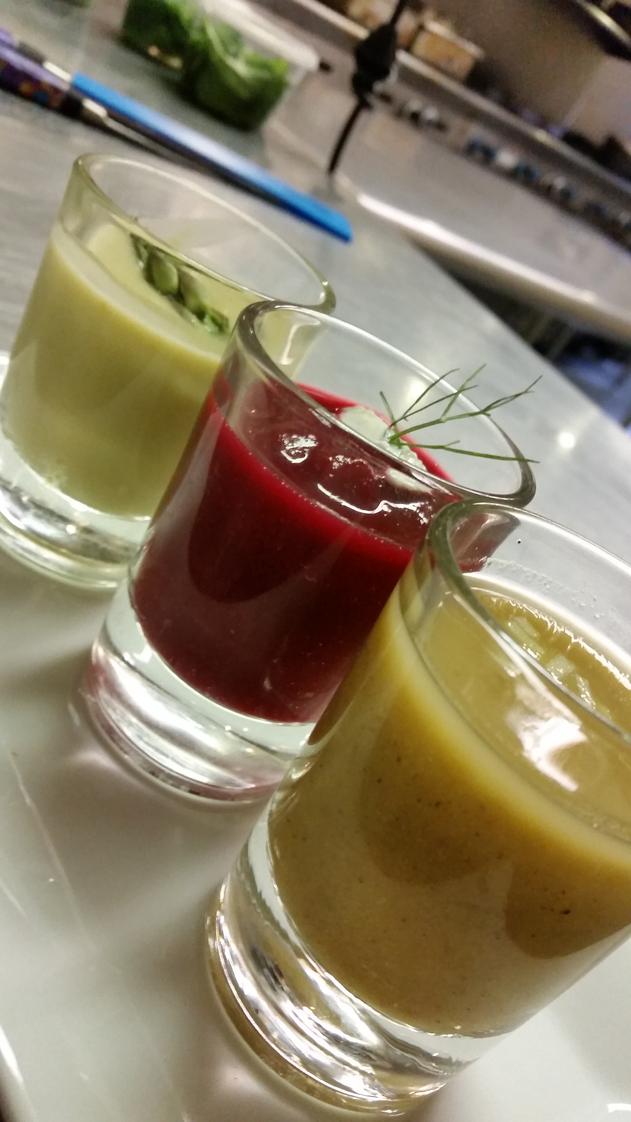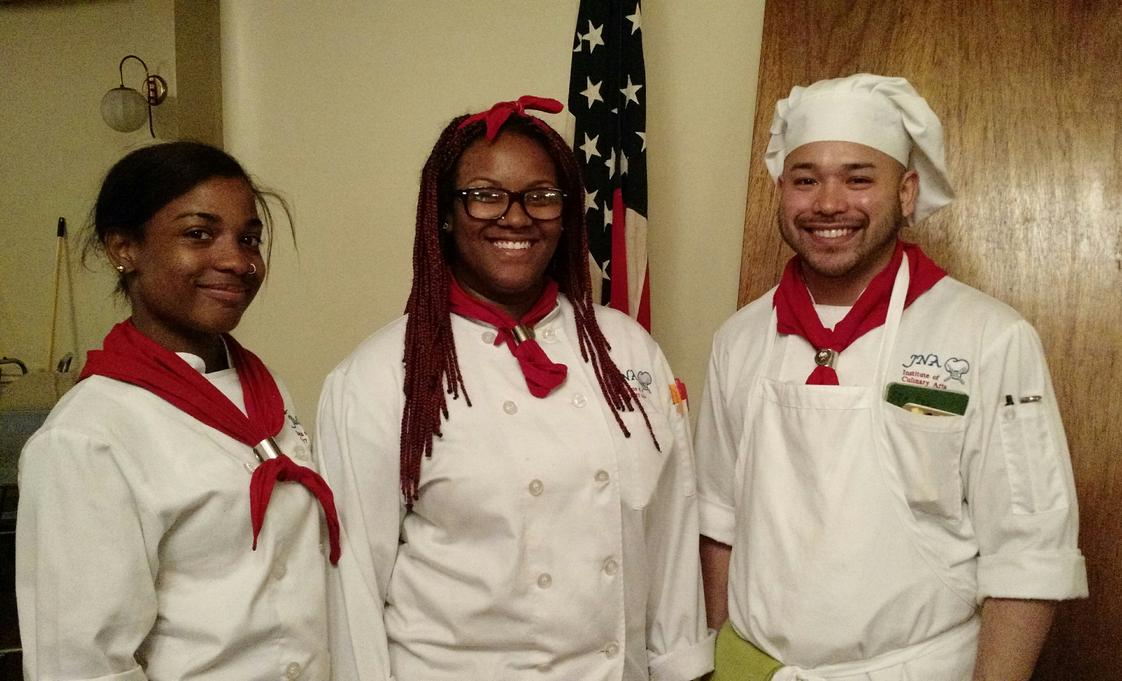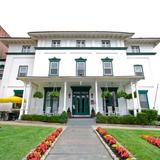- JNA Institute of Culinary Arts is dedicated to turning out well-trained graduates. The faculty, using modern educational techniques, teaches the students in a realistic job setting. Hands-on training is stressed, but theory and relevant course work are also used to provide our students with the necessary background and experience to become successes.
School Highlights
Jna Institute of Culinary Arts serves 41 students (100% of students are full-time).
The college's student:teacher ratio of 7:1 is lower than the state community college average of 15:1.
Minority enrollment is 91% of the student body (majority Black), which is more than the state average of 48%.
Quick Stats (2025)
- Enrollment: 41 students
- Private-state tuition: $12,725
- Student:teacher ratio: 7:1
- Minority enrollment: 91%
- Source: Integrated Postsecondary Education Data System (IPEDS)
Top Rankings
Jna Institute of Culinary Arts ranks among the top 20% of public schools in Pennsylvania for:
Category
Attribute
Debt For Students
School Overview
The teacher population of 6 teachers has stayed relatively flat over five years.
Jna Institute of Culinary Arts
(PA) Community College Avg.
Carnegie Classification
Special Focus Two-Year: Arts & Design
Baccalaureate/Associate's Colleges: Mixed Baccalaureate/Associate's
Institution Level
At least 2 but less than 4 years
At least 2 but less than 4 years
Institution Control
Private for-profit
Private not-for-profit
Total Faculty
6 staff
58 staff
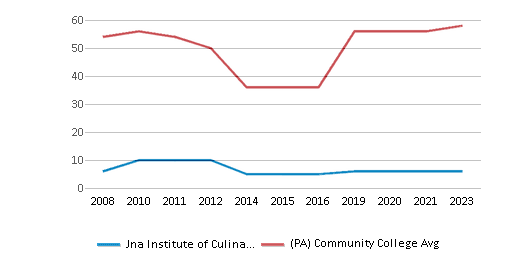
School Calendar
Student Body
The student population of Jna Institute of Culinary Arts has grown by 41% over five years.
The student:teacher ratio of 7:1 has increased from 2:1 over five years.
The Jna Institute of Culinary Arts diversity score of 0.46 is less than the state average of 0.68. The school's diversity has declined by 20% over five years.
Total Enrollment
41 students
361 students
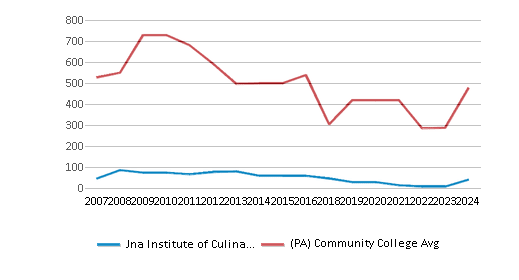
Student : Teacher Ratio
7:1
15:1
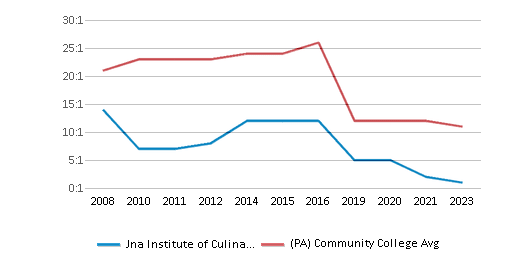
# Full-Time Students
41 students
310 students
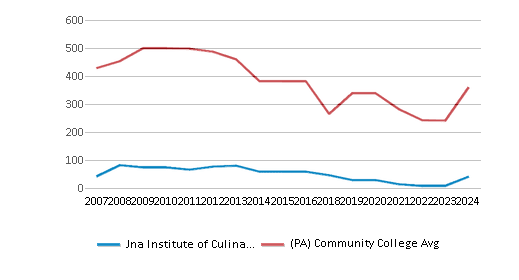
# Part-Time Students
n/a
134 students
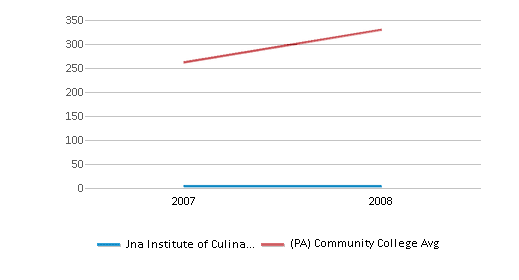
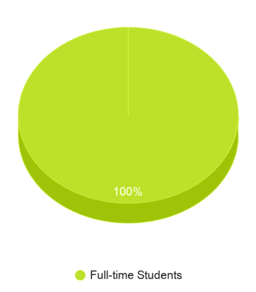
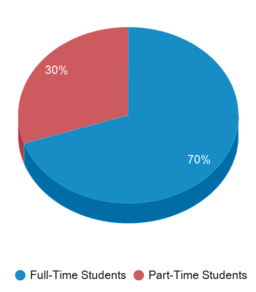
# Enrollment Undergraduate
41 students
300 students
# Full-Time Undergraduate Students
41 students
300 students
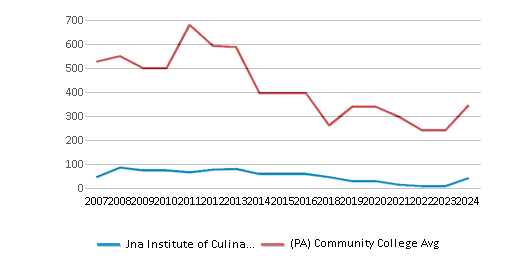
# Full-Time Graduate Students
n/a
10 students
# Part-Time Undergraduate Students
n/a
134 students
# Part-Time Graduate Students
n/a
12 students
Total Dormitory Capacity
n/a
330 students
% Asian
4%
5%
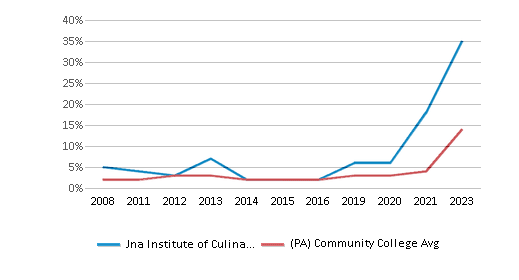
% Hispanic
4%
11%
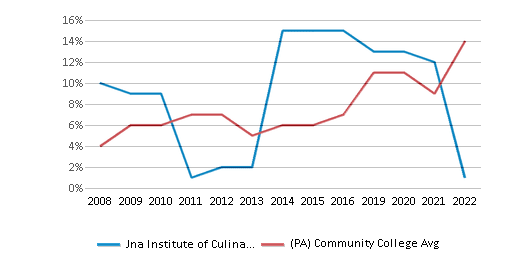
% Black
72%
15%
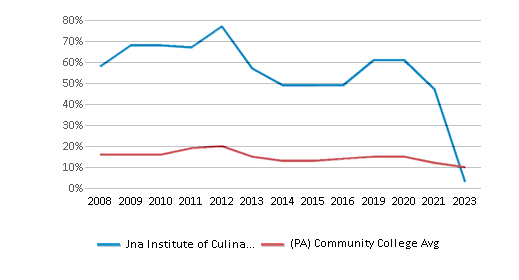
% White
9%
52%
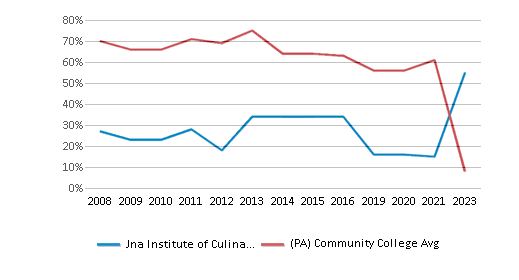
% Hawaiian
11%
3%
% Two or more races
n/a
3%
% Non Resident races
n/a
1%
% Unknown races
n/a
10%
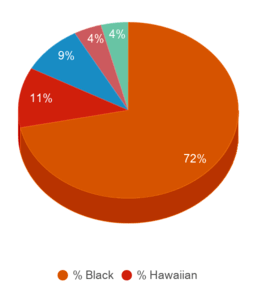
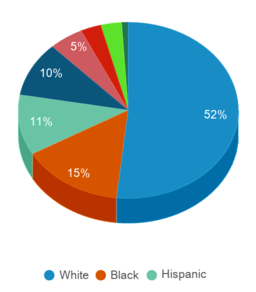
Diversity Score
0.46
0.68
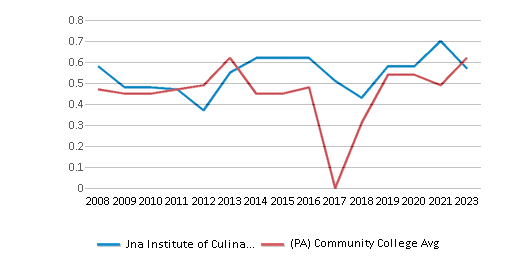
College Completion Rate (Students who graduate in less than 4 years)
0.75%
0.6111%
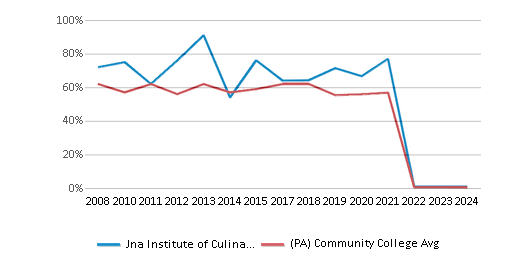
College Completion Rate (Students who graduate in 4 years or more than 4 years)
n/a
0.3822%
Average Graduate Earnings (10 Years)
$22,100
$34,900
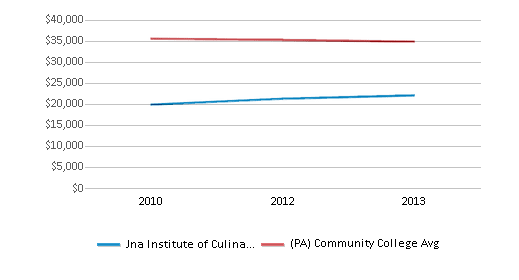
Tuition and Acceptance Rate
The private state tuition of $12,725 is less than the state average of $17,177. The private state tuition has declined by 12% over four years.
Private State Tuition Fees
$12,725
$17,177
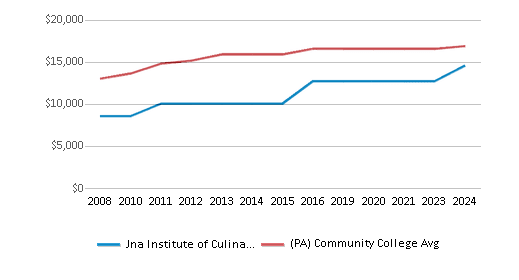
% Students Receiving Some Financial Aid
57%
91%
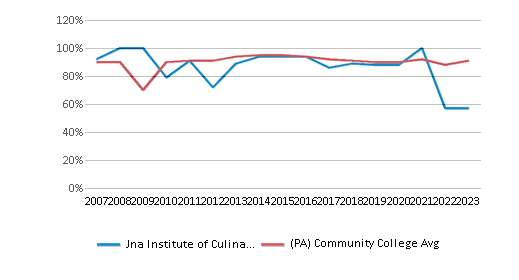
Median Debt for Graduates
$9,500
$13,620
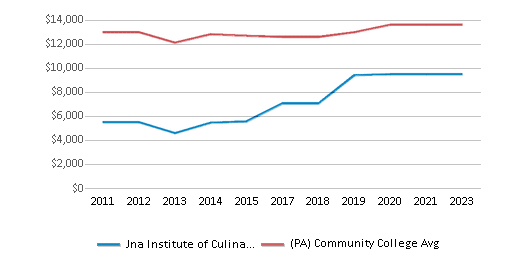
Median Debt for Dropouts
$5,500
$5,500
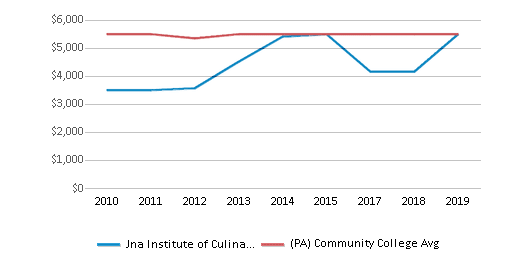
Acceptance Rate
n/a
78%
SAT Reading
n/a
460
SAT Math
n/a
470
SAT Writing
n/a
435
ACT Composite
n/a
20
ACT English
n/a
20
ACT Math
n/a
21
ACT Writing
n/a
7
Source: 2024 (or latest year available) Integrated Postsecondary Education Data System (IPEDS)
School Notes
- JNA Institute of Culinary Arts has provided quality training for the food service industry since 1988. From the standpoint of success stories, graduates from our first program are still employed in the food service industry in ever increasing areas of responsibility. With a strong concern for educational excellence and a proud record of job placement, the school maintains an excellent reputation among students, graduates, and employers throughout the Philadelphia area. In 1999 the Alpha Beta Kappa National Honor Society authorized the establishment of the “Iota of Pennsylvania” Chapter at the school. The school is located at the south end of the Avenue of the Arts, in the heart of historic South Philadelphia, and is easily accessible by all forms of public transportation. The school features two laboratory kitchens with ranges, ovens, broilers, other commercial cooking equipment and supplies needed to simulate working restaurants. The use of these laboratory kitchens in conjunction with classroom lectures enhances the training provided by our programs. Our equipment assists in the proper instruction and production of breads, cakes, tarts, sauces, salads and entrées that prepares and qualifies students to meet the expectations of the food service industry. The college offers Diploma Program in Professional Cooking, Specialized Food Service Management program and Associate Degree in Culinary Arts / Restaurant Management. In 1992 the school was recognized by the Pennsylvania Department of Education, State Board of Private Licensed Schools and was granted a License to operate as a private licensed school. In February of 1994 the school became accredited by the Accrediting Commission of Career Schools and Colleges of Technology (ACCSCT).
Frequently Asked Questions
How much does Jna Institute of Culinary Arts cost?
Jna Institute of Culinary Arts's private state tuition is approximately $12,725.
What schools are Jna Institute of Culinary Arts often compared to?
Jna Institute of Culinary Artsis often viewed alongside schools like Community College of Philadelphia by visitors of our site.
What is Jna Institute of Culinary Arts's ranking?
Jna Institute of Culinary Arts ranks among the top 20% of community college in Pennsylvania for: Least debt for graduating students.
In what neighborhood is Jna Institute of Culinary Arts located?
Jna Institute of Culinary Arts is located in the Point Breeze neighborhood of Philadelphia, PA.
Recent Articles

How To Craft the Perfect College Admissions Essay
Read on to learn the ins and outs of crafting the perfect college application essay.

Obtaining Your Bachelor's Degree at a Community College
Explore the evolving landscape of community colleges offering bachelor's degrees, addressing affordability, accessibility, and workforce needs.

A to Z of Community College Certificates and Courses
From business and healthcare to technology and skilled trades, the article showcases the breadth of options available to students seeking to enhance their knowledge, develop new skills, or pursue career advancement.

